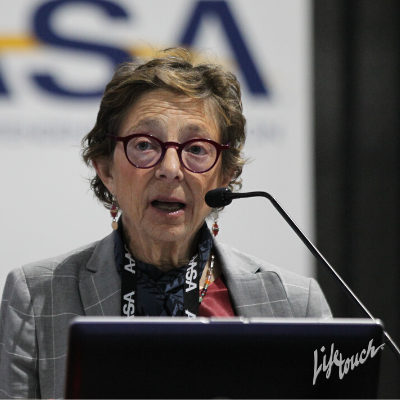When Ray Powers worked in Brockton Public Schools in Massachusetts a decade ago, he came face-to-face with alarming behavior in classrooms.
“Students were throwing chairs across the room while others had retreated to a corner,” Powers said.
He could not make sense of it. The search for answers and a common thread revealed that these students were traumatized.
At a packed Thought Leader session “Trauma-Sensitive Teaching: Personalizing Culture” at the AASA national conference on Thursday, attendees heard from Brockton and two other practitioners, as well as a national trauma expert.
“Every classroom has children affected by trauma,” said Susan Cole, a Harvard Law School professor who is also director of the school’s trauma and learning policy initiative, co-managed by Massachusetts Advocates for Children. “To address trauma, you need a holistic, whole-school approach.”
Trauma-sensitive practices benefit all students and don’t have to be costly, Cole said. She has seen creative solutions, such as setting up calming corners for children and videos that train new teachers how to welcome students.
When a student comes to school late, teachers are tempted to send the student to the principal’s office. Cole’s advice to superintendents to address this was simple and resonated with the audience. All educators need to do is stop, she said, and take 10 seconds to ask themselves: Will that make the student feel better? Will that make the student feel more connected? Are there other alternatives?
Powers, an assistant superintendent in the Bridgewater-Raynham School District in Massachusetts, champions efforts to build trauma-sensitive schools. He focuses on building relationships.
The changes in the district’s culture have been evolving over more than five years. Out-of-school suspensions are no longer the norm. Powers replaced the practice with in-house suspensions and additional support from a paraprofessional who checked in on struggling students. “Disciplining and suspending students didn’t change behavior,” he said.
More recently, Powers mandated a morning meeting for teachers to get to know kids and their interests.
“Academic outcomes come if you put these practices in place,” Powers said. When he implemented such trauma-sensitive practices, the impact on achievement and behavior was positive.
(Liz Griffin is senior reporter of AASA’s Conference Daily Online and managing editor of School Administrator.)










